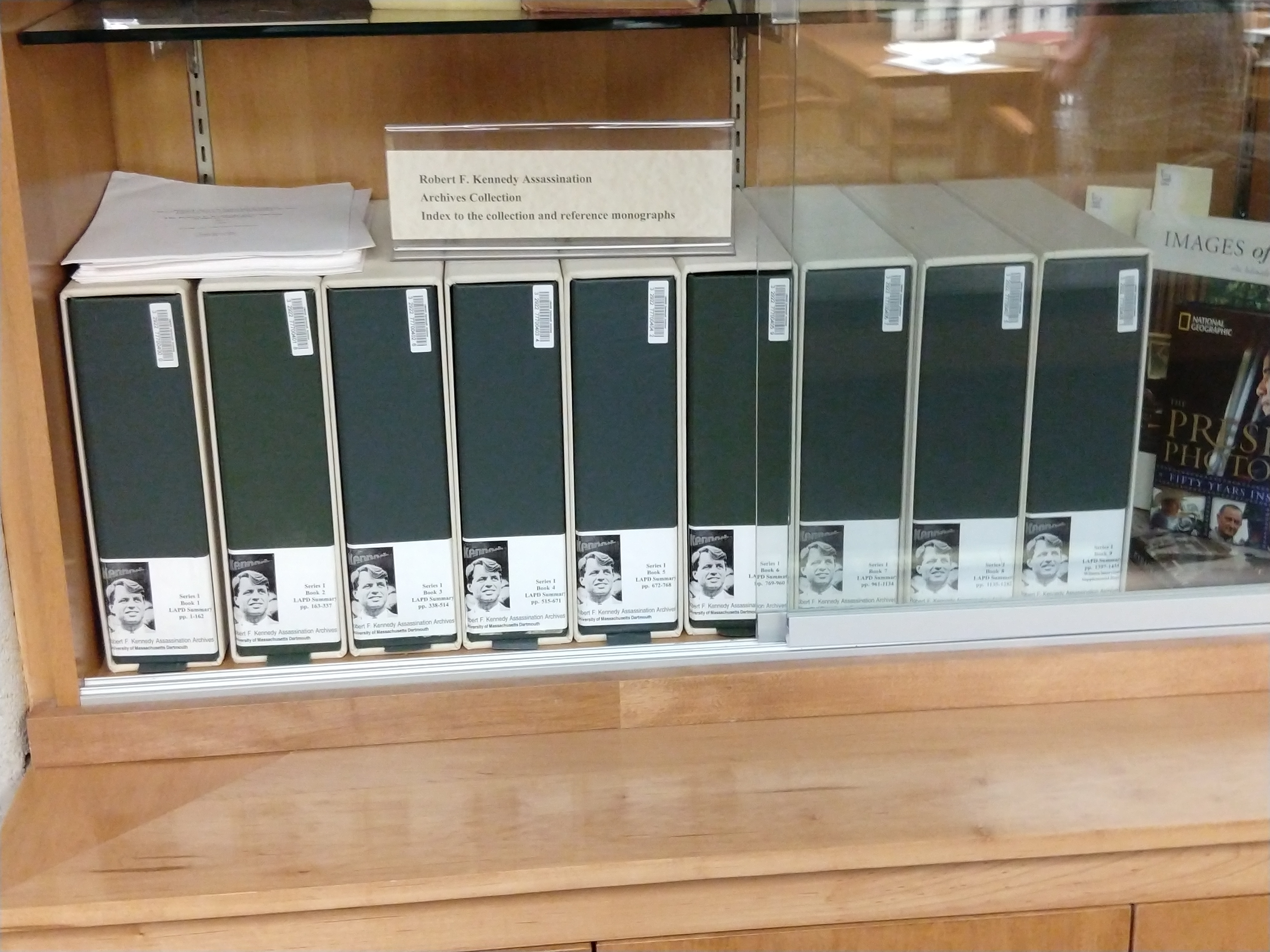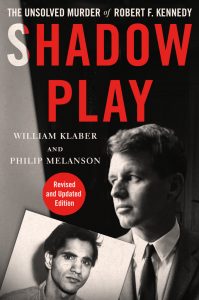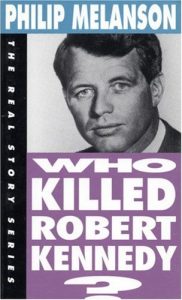50 Years Later: Archives Reignite Conspiracy Theories On Robert F. Kennedy’s Assassination

The index of the Robert F. Kennedy Assassination Archives Collection, created by Philip Melanson. Photo by Jon Kalish for the NENC
This week marks the 50 years since the assassination of Robert F. Kennedy. While the controversy and conspiracy theories surrounding the death of his brother, John F. Kennedy, are well known, the murder of Robert Kennedy is much less familiar to the public. In 1984, Philip Melanson, a political science professor at the University of Massachusetts Dartmouth, created an archive devoted to RFK’s assassination. Today, the files serve as a valuable resource for those looking into alternate theories about the murder.
Melanson, who died in 2006, created the Robert F. Kennedy Assassination Archive four years before the Los Angeles Police Department released files on the killing. Those files were sealed for 20 years after the shooting. Melanson wrote two books about RFK’s assassination, challenging the official conclusion that Sirhan Sirhan was the sole assassin in the pantry of the Ambassador Hotel in Los Angeles.
“To date, there have been four witnesses whose accounts seem credible to me, who have talked about seeing a man in plain clothes with a gun in the pantry,” said Melanson in a 1993 public radio documentary. “And three of those four witnesses alleged that such a gun was fired in proximity to Kennedy.”
Melanson believed that Sirhan was programmed with the use of hypnosis to carry out the killing. Often assassination conspiracies like this are dismissed as loopy, but Philip Melanson brought academic rigor to his work.
“He’s still revered by the community that looks into these issues,” says his son, Jess Melanson. He remembers his father as a man devoted to his research who traveled far making media appearances in an effort to educate the public on political assassinations.
“For him, as a political scientist, to understand how our political leaders were killed and who killed them and what their motivation was is hugely important to understand the political implications of what happened and how it changed public policy and how it changed the country.”
The collection is kept in a climate-controlled storage room at the University of Massachusetts Dartmouth. In the room, a row of 12-foot high shelves contains about a million pages of documents and other materials relating to the assassination.
“It starts with the LAPD records here, then the FBI records, we have the House Select Committee on Assassinations, photographs, newspaper clippings, private investigators’ materials. These are all the audio tapes,” explains librarian Judy Farrar.
The audio tapes include recordings of police interviews in which witnesses were brow-beaten and pressured to change their stories, as well as recordings of hypnosis sessions conducted by psychiatrists. Sirhan had no recollection of the shooting during the sessions. In one interview a psychiatrist says, “Reach for your gun, Sirhan. It’s your last chance, Sirhan. Reach for your gun. Where is your gun? Where is your gun? Reach for it.”

William Klaber and Philip Melanson co-wrote the book, “Shadow Play: The Unsolved Murder of Robert F. Kennedy.”
Bill Klaber is Philip Melanson’s co-author of the 1997 book Shadow Play, which refers to the RFK assassination as an unsolved murder. Klaber went back to the UMass archive to do research for the newly revised edition. He also has a hand in a podcast that makes extensive use of audio from the archive.
“If you want to research the murder of Robert Kennedy, they have lots and lots of audio tapes that other people don’t have–interviews that various researchers have made talking to witnesses,” Klaber says.
Bill Klaber is part of a small fraternity of journalists and investigators who have spent decades researching the assassination of Robert Kennedy. Many in that fraternity have praised the work of Philip Melanson.
“Phil was a brave man,” says Klaber. “I don’t think I quite appreciated the extent of his courage when I was working with him. He was a tough guy. He took on the CIA. He took on some really rough characters in books that he wrote.”
Robert Kennedy Jr. joined the list of those who believe that Sirhan was not the sole assassin. That group now includes the 93-year-old labor activist who was shot in the head with what is believed to be the first bullet out of Sirhan’s gun.

